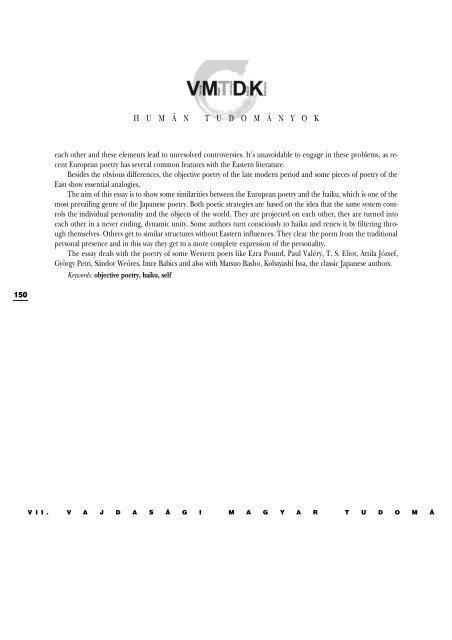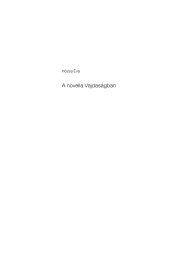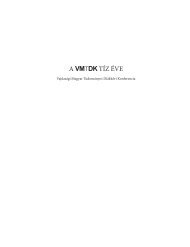Rezümékötet 2008. - vmtdk
Rezümékötet 2008. - vmtdk
Rezümékötet 2008. - vmtdk
You also want an ePaper? Increase the reach of your titles
YUMPU automatically turns print PDFs into web optimized ePapers that Google loves.
150<br />
H U M Á N T U D O M Á N Y O K<br />
each other and these elements lead to unresolved controversies. It’s unavoidable to engage in these problems, as recent<br />
European poetry has several common features with the Eastern literature.<br />
Besides the obvious differences, the objective poetry of the late modern period and some pieces of poetry of the<br />
East show essential analogies.<br />
The aim of this essay is to show some similarities between the European poetry and the haiku, which is one of the<br />
most prevailing genre of the Japanese poetry. Both poetic strategies are based on the idea that the same system controls<br />
the individual personality and the objects of the world. They are projected on each other, they are turned into<br />
each other in a never ending, dynamic unity. Some authors turn consciously to haiku and renew it by filtering through<br />
themselves. Others get to similar structures without Eastern influences. They clear the poem from the traditional<br />
personal presence and in this way they get to a more complete expression of the personality.<br />
The essay deals with the poetry of some Western poets like Ezra Pound, Paul Valéry, T. S. Eliot, Attila József,<br />
György Petri, Sándor Weöres, Imre Babics and also with Matsuo Basho, Kobayashi Issa, the classic Japanese authors.<br />
Keywords: objective poetry, haiku, self<br />
V I I . V A J D A S Á G I M A G Y A R T U D O M Á




